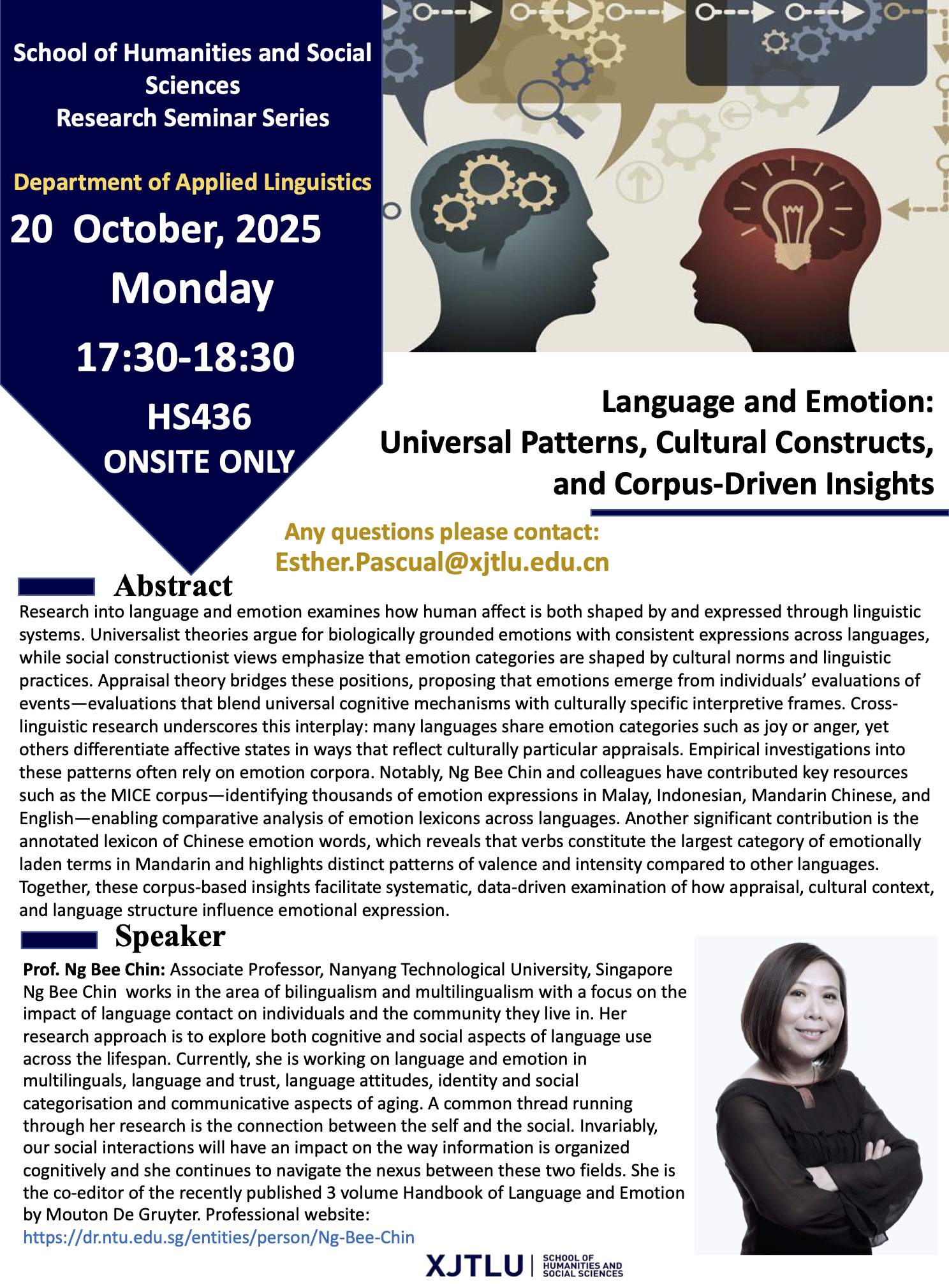
Deatils
TOPIC: Language and Emotion: Universal Patterns, Cultural Constructs, and Corpus-Driven Insights
TIME: 20 Oct 2025, 17:30-18:30
VENUE: HS436, onsite only
SPEAKER: Prof. Ng Bee Chin: Associate Professor, Nanyang Technological University, Singapore
Abstract
Research into language and emotion examines how human affect is both shaped by and expressed through linguistic systems. Universalist theories argue for biologically grounded emotions with consistent expressions across languages, while social constructionist views emphasize that emotion categories are shaped by cultural norms and linguistic practices. Appraisal theory bridges these positions, proposing that emotions emerge from individuals’ evaluations of events—evaluations that blend universal cognitive mechanisms with culturally specific interpretive frames. Cross linguistic research underscores this interplay: many languages share emotion categories such as joy or anger, yet others differentiate affective states in ways that reflect culturally particular appraisals. Empirical investigations into these patterns often rely on emotion corpora. Notably, Ng Bee Chin and colleagues have contributed key resources such as the MICE corpus—identifying thousands of emotion expressions in Malay, Indonesian, Mandarin Chinese, and English—enabling comparative analysis of emotion lexicons across languages. Another significant contribution is the annotated lexicon of Chinese emotion words, which reveals that verbs constitute the largest category of emotionally laden terms in Mandarin and highlights distinct patterns of valence and intensity compared to other languages. Together, these corpus-based insights facilitate systematic, data-driven examination of how appraisal, cultural context, and language structure influence emotional expression.
Speaker
Prof. Ng Bee Chin: Associate Professor, Nanyang Technological University, Singapore Ng Bee Chin works in the area of bilingualism and multilingualism with a focus on the impact of language contact on individuals and the community they live in. Her research approach is to explore both cognitive and social aspects of language use across the lifespan. Currently, she is working on language and emotion in multilinguals, language and trust, language attitudes, identity and social categorisation and communicative aspects of aging. A common thread running through her research is the connection between the self and the social. Invariably, our social interactions will have an impact on the way information is organized cognitively and she continues to navigate the nexus between these two fields. She is the co-editor of the recently published 3 volume Handbook of Language and Emotion by Mouton De Gruyter. Professional website: https://dr.ntu.edu.sg/entities/person/Ng-Bee-Chin








